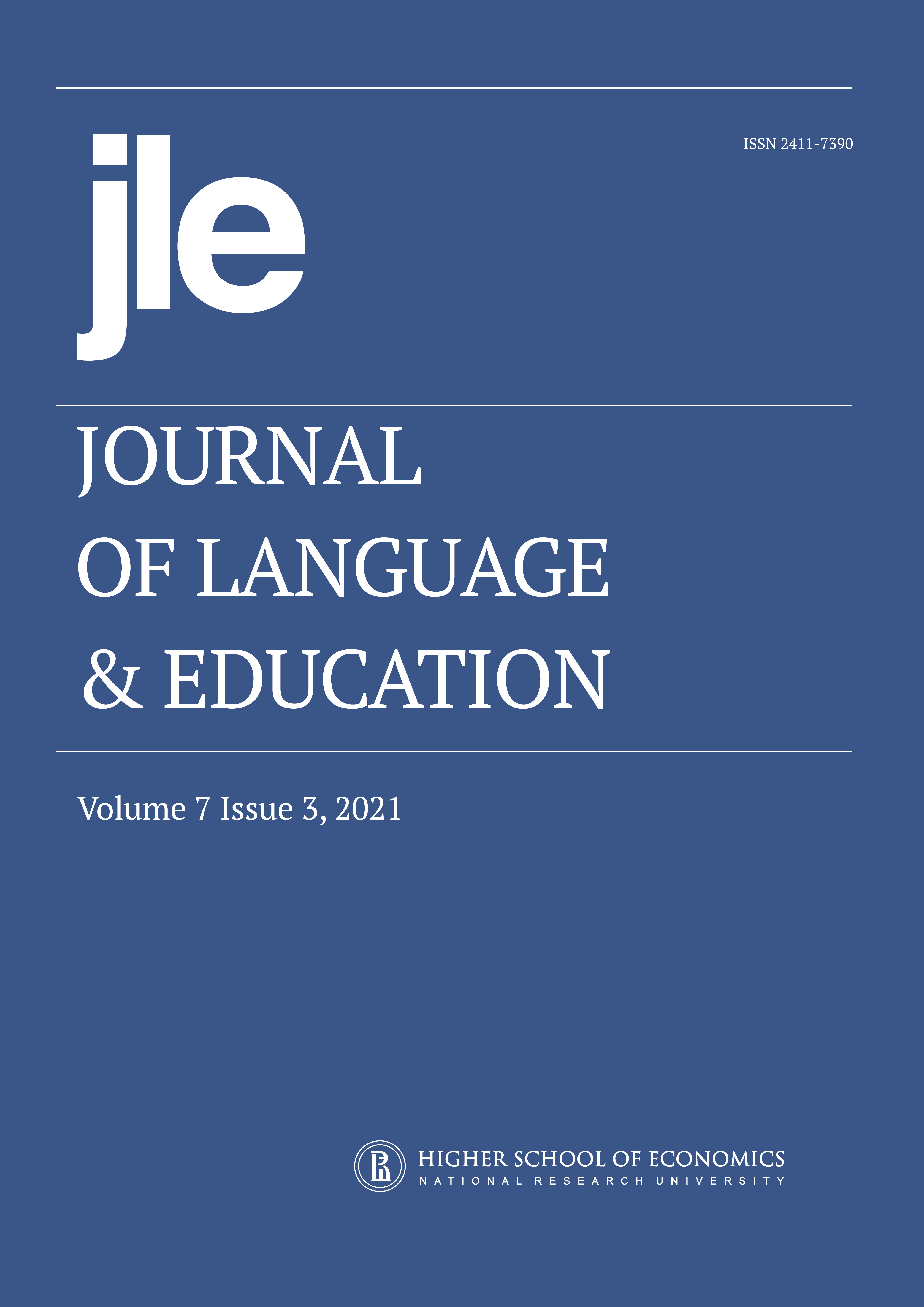Exploring the Relationship Between L2 Listening and Metacognition after Controlling for Vocabulary Knowledge
Abstract
Metacognition is known to be important for L2 listening comprehension. However, it is unclear how much variance in listening performance it can explain after controlling for vocabulary knowledge. To examine this, data from the listening section of the TOEFL Junior test, the Metacognitive Awareness Listening Questionnaire (MALQ), and the Listening Vocabulary Levels Test were collected from 76 high school EFL learners in Japan. The MALQ measured five subscales of metacognition representing metacognitive skills and metacognitive knowledge. Representing skills, the MALQ measured perceptions of the ability to (1) plan and evaluate performance, (2) direct attention, and (3) overcome listening problems. Representing knowledge, it measured strategic knowledge of (4) avoiding mentally translating speech and person knowledge of (5) maintaining positive attitudes about listening. The descriptive results showed that participants used their metacognition moderately. Of the subscales, they directed attention the most, planned and evaluated performance least, and perceived their ability to avoid mental translation, solve problems, and maintain optimism equivalently. The results from the hierarchical regression analysis further showed that vocabulary knowledge and metacognition overall predicted listening performance. Of the MALQ subscales, only person knowledge predicted comprehension. These findings indicate that, contrary to earlier findings, metacognition was important for listening comprehension after accounting for vocabulary knowledge.
Downloads
References
Al-Alwan, A., Asassfeh, S., & Al-Shboul, Y. (2013). EFL learners' listening comprehension and awareness of metacognitive strategies: How are they related? International Education Studies, 6, 31-39. DOI: https://doi.org/10.5539/ies.v6n9p31
Anderson, J. R. (2005). Cognitive psychology and its implications (6 ed.). Worth Publishers.
Borkowski, J. G., Chan, L. K., & Muthukrishna, N. (2000). A process-oriented model of metacognition: Links between motivation and executive functioning. In G. Schraw, & J. C. Impara (Eds.), Issues in measurement of metacognition (pp. 1-41). Buros Institute of Mental Measurements.
Cohen, L., Manion, L., & Morrison, K. (2011). Research methods in education. Routledge.
Coxhead, A. (2000). A new academic word list. TESOL Quarterly, 34, 213-238. DOI: https://doi.org/10.2307/3587951
Dornyei, Z. (2007). Research methods in applied linguistics. Oxford University Press.
Elkhafaifi, H. (2005). Listening comprehension and anxiety in the Arabic language classroom. The Modern Language Journal, 89, 206-220. DOI: https://doi.org/10.1111/j.1540-4781.2005.00275.x
Fahim, M., & Fakhri Alamdari, E. (2014). Maximizing learners' metacognitive awareness in listening through metacognitive instruction: An empirical study.International Journal of Research Studies in Education, 3, 79-91. DOI: https://doi.org/10.5861/ijrse.2014.762
Field, A. (2009). Discovering statistics using SPSS (3rd ed.). Sage.
Field, J. (2008). Listening in the language classroom. Cambridge University Press.
Flavell, J. H. (1979). Metacognition and cognitive monitoring: A new area of cognitive-developmental inquiry. American Psychologist, 34, 906-911. DOI: https://doi.org/10.1037/0003-066X.34.10.906
Goh, C. C. M. (2008). Metacognitive instruction for second language listening development: Theory, practice and research implications. RELC Journal, 39, 188-213. DOI: https://doi.org/10.1177/0033688208092184
Goh, C. C. M., & Hu, G. (2014). Exploring the relationship between metacognitive awareness and listening performance with questionnaire data. Language Awareness, 23, 255-274. DOI: https://doi.org/10.1080/09658416.2013.769558
Goh, C. C. M., & Kaur, K. (2013). Insights into young learners' metacognitive awareness about listening. The European Journal of Applied Linguistics and TEFL, 2, 5-26.
Graham, S., & Macaro, E. (2008). Strategy instruction in listening for lower-intermediate learners of French. Language Learning, 58(4), 747-783. DOI: https://doi.org/10.1111/j.1467-9922.2008.00478.x
Green, S. B. (1991). How many subjects does it take to do a regression analysis? Multivariate Behavioral Research, 26, 499-510. DOI: https://doi.org/10.1207/s15327906mbr2603_7
Hulstijn, J. H. (2015). Language proficiency in native and non-native speakers: Theory and research. John Benjamins Publishing Company.
Hulstijn, J. H. (2019). An individual-differences framework for comparing nonnative with native speakers: Perspectives from BLC Theory. Language Learning, 69, 157-183. DOI: https://doi.org/10.1111/lang.12317
Larson-Hall, J., & Herrington, R. (2010). Improving data analysis in second language acquisition by utilizing modern developments in applied statistics. Applied Linguistics, 31, 368-390. DOI: https://doi.org/10.1093/applin/amp038
Li, W. (2013). A study of metacognitive awareness of non-English majors in L2 listening. Journal of Language Teaching and Research, 4, 504-511. DOI: https://doi.org/10.4304/JLTR.4.3.504-510
McLean, S., Kramer, B., & Begler, D. (2015). The creation and validation of a listening vocabulary levels test. Language Teaching Research, 19, 1-20. DOI: https://doi.org/10.1177/1362168814567889
Nelson, T. O. (1996). Consciousness and metacognition. American Psychologist, 51, 102-116. DOI: https://doi.org/10.1037/0003-066X.51.2.102
Nishino, T., & Watanabe, M. (2008).Communication-oriented policies versus classroom realities in Japan. TESOL Quarterly, 42, 133-138. DOI: https://doi.org/10.2307/40264432
Pressley, M., & Gaskins, I. W. (2006). Metacognitively competent reading comprehension is constructively responsive reading: How can such reading be developed in students? Metacognition and Learning, 1, 99-113. DOI: https://doi.org/10.1007/s11409-006-7263-7
Rahimirad, M., & Shams, M. R. (2014). The effect of activating metacognitive strategies on the listening performance and metacognitive awareness of EFL students.International Journal of Listening, 28, 162-176. DOI: https://doi.org/10.1080/10904018.2014.902315
Vandergrift, L., & Baker, S. C. (2015). Learner variables in second language listening comprehension: An exploratory path. Language Learning, 65, 390-416. DOI: https://doi.org/10.1111/lang.12105
Vandergrift, L., & Baker, S. C. (2018). Learner variables important for success in L2 listening comprehension in French immersion classrooms. Canadian Modern Language Review, 74, 79-100. DOI: https://doi.org/10.3138/cmlr.3906
Vandergrift, L., & Goh, C. C. M. (2012). Teaching and learning second language listening: Metacognition in action. Routledge.
Vandergrift, L., Goh, C. C. M., Mareschal, C. J., & Tafaghodtari, M. H. (2006). The metacognitive awareness listening questionnaire: Development and validation. Language Learning, 56, 431-462. DOI: https://doi.org/10.1111/j.1467-9922.2006.00373.x
Veenman, M. V., Van Hout-Wolters, B. H., & Afflerbach, P. (2006). Metacognition and learning: Conceptual and methodological considerations. Metacognition and Learning, 1, 3-14. DOI: https://doi.org/10.1007/S11409-006-6893-0
Wagner, E. (2004). A construct validation study of the extended listening sections of the ECPE and MELAB. Spaan Fellow Working Papers in Second or Foreign Language Assessment, 2, 1-26.
Wallace, M. P. (2020). Individual differences in second language listening: Examining the role of knowledge, metacognitive awareness, memory, and attention. Language Learning. Advance online publication. DOI: https://doi.org/10.1111/lang.12424
Wang, Y., & Treffers-Daller, J. (2017). Explaining listening comprehension among L2 learners of English: The contribution of general language proficiency, vocabulary knowledge and metacognitive awareness. System, 65, 139-150. DOI: https://doi.org/10.1016/j.system.2016.12.013
Copyright (c) 2021 National Research University Higher School of Economics

This work is licensed under a Creative Commons Attribution 4.0 International License.
Authors who publish with this journal agree to the Copyright Notice.



